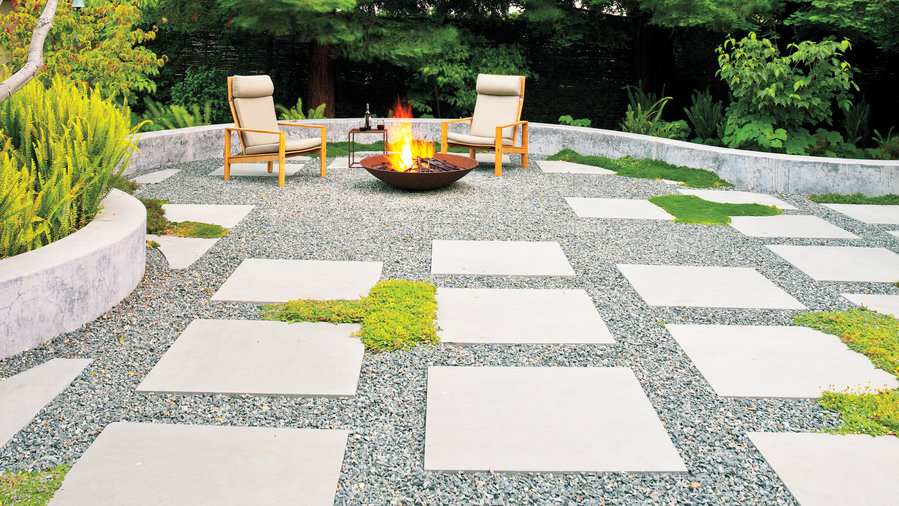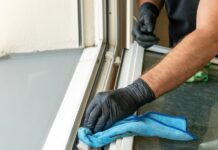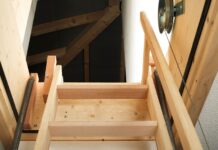Over the last few years, permeable paving options have gained quite a popularity with homeowners looking to install a new driveway, and with good reason.
In addition to saving you money and being very easy to install, these permeable surfaces offer sustainability, and eco-friendliness and significantly reduce driveway drainage problems by cutting off the amount of rainwater that falls off roofs and runs down or settles on the surface of the driveway.
So, if you’re looking to invest in a new driveway this year, below are some of the best permeable paving options you can consider.
Gravel Driveway
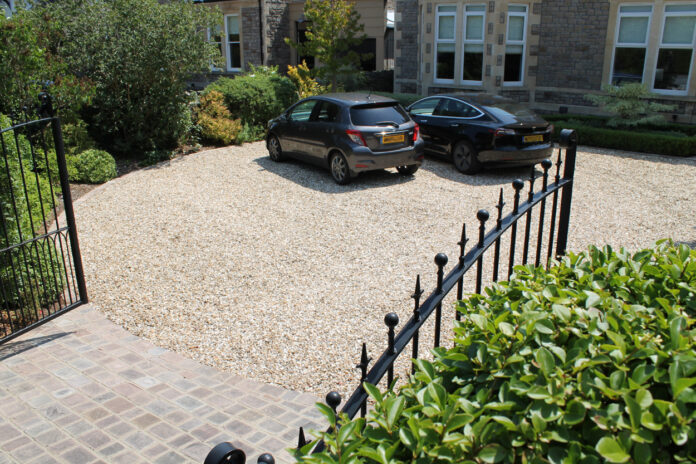
Gravel is a quite popular driveway material owing to its attractiveness and affordability. But one other benefit that many do not know about is that it offers great drainage due to its porosity. Installation is also quite easy, as all that is needed is the application of the gravel material over a sub-base or weed mesh.
This means that it can be taken on as a DIY project; however, letting a professional do the installation will yield the best outcome. Many homeowners usually prefer the weed mesh as it is better at preventing greenery from growing through the gravel. The only downside to this type of driveway is that it is not ideal for steep surfaces and it requires regular maintenance for it to remain tidy and smooth.
Reinforced Grass
The natural look of a reinforced grass driveway has made it a popular choice amongst homeowners looking to maintain a natural level of kerb appeal. With reinforced grass, plastic, rubber or concrete mesh mats are laid on the ground and the lawn is allowed to grow through the mesh to create an organic look.
In addition to being an excellent permeable paving option, one other advantage of this type of paving is that they prevent your vehicle from making ugly tire marks. They also offer great drainage and are incredibly easy to install.
Regular mowing is, however, necessary with this type of paving, and you will also need to use the correct type of grass, as any other type may not grow through the mesh.
Plastic Grid Systems
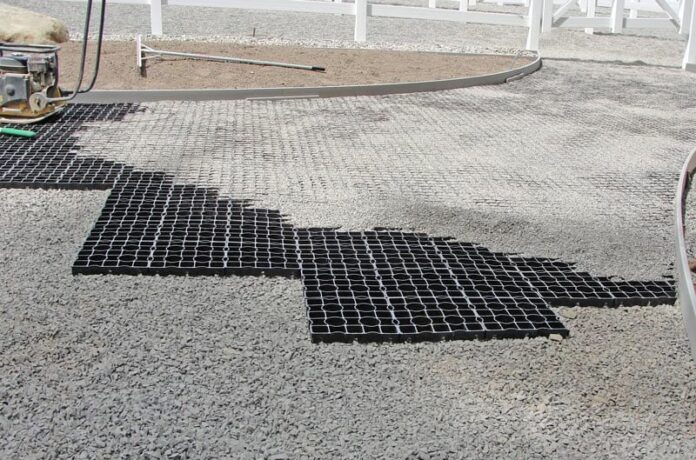
This is another type of paving that allows the free flow of water. The grid systems are formed by using blocks or recycled plastic grids to create a hard-driving or walking surface. The grids are usually filled with either gravel or sand and soil. Plastic grid systems are very easy to install, long-lasting and require little to no maintenance.
Permeable Hard surfaces
Unfortunately, truly porous driveways like gravel and loose stone have a downside which is poor stability. Thankfully, if you are getting your driveway installed by professional contractors like Kane Construction, you can get some types of driveway material that can be both stable and porous.
Some of these include:
Permeable Concrete and Asphalt
Although it sounds odd, there are new types of asphalt and concrete driveways that can actually allow water to soak through. The concrete and asphalt materials are tweaked to allow easy passage of water around the edges of the surface or even through the main body. The bases of these types of driveways are usually kept porous, so they can handle heavy rains.
This permeable concrete and asphalt were developed to allow better drainage and for areas where environmental regulations do not permit the use of non-permeable surfaces. Another alternative for permeable concrete is the use of open-cell concrete blocks, which allow for easy passage of water.
Permeable Resin
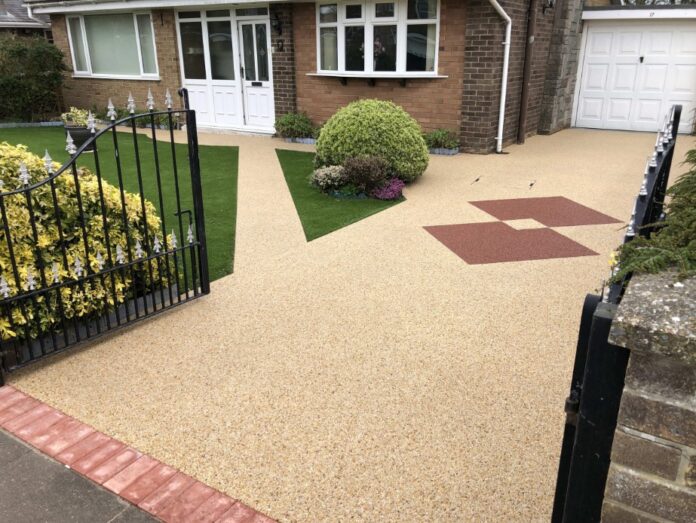
This type of driveway has natural water-filtering qualities, so it is easy for water to seep through its surface and into the ground through the substrate. Resin-bound driveways also offer full SUDS (Sustainable urban Drainage Systems) compliance and are a great option for flood-conscious homeowners who do not want to compromise on aesthetics.
Conclusion
Driveway drainage is one of the main problems homeowners have to deal with when it comes to maintaining their driveway. Permeable driveways eliminate this problem. So if you’re looking to have a new driveway installed, be sure to consider some of the permeable paving options mentioned above.

